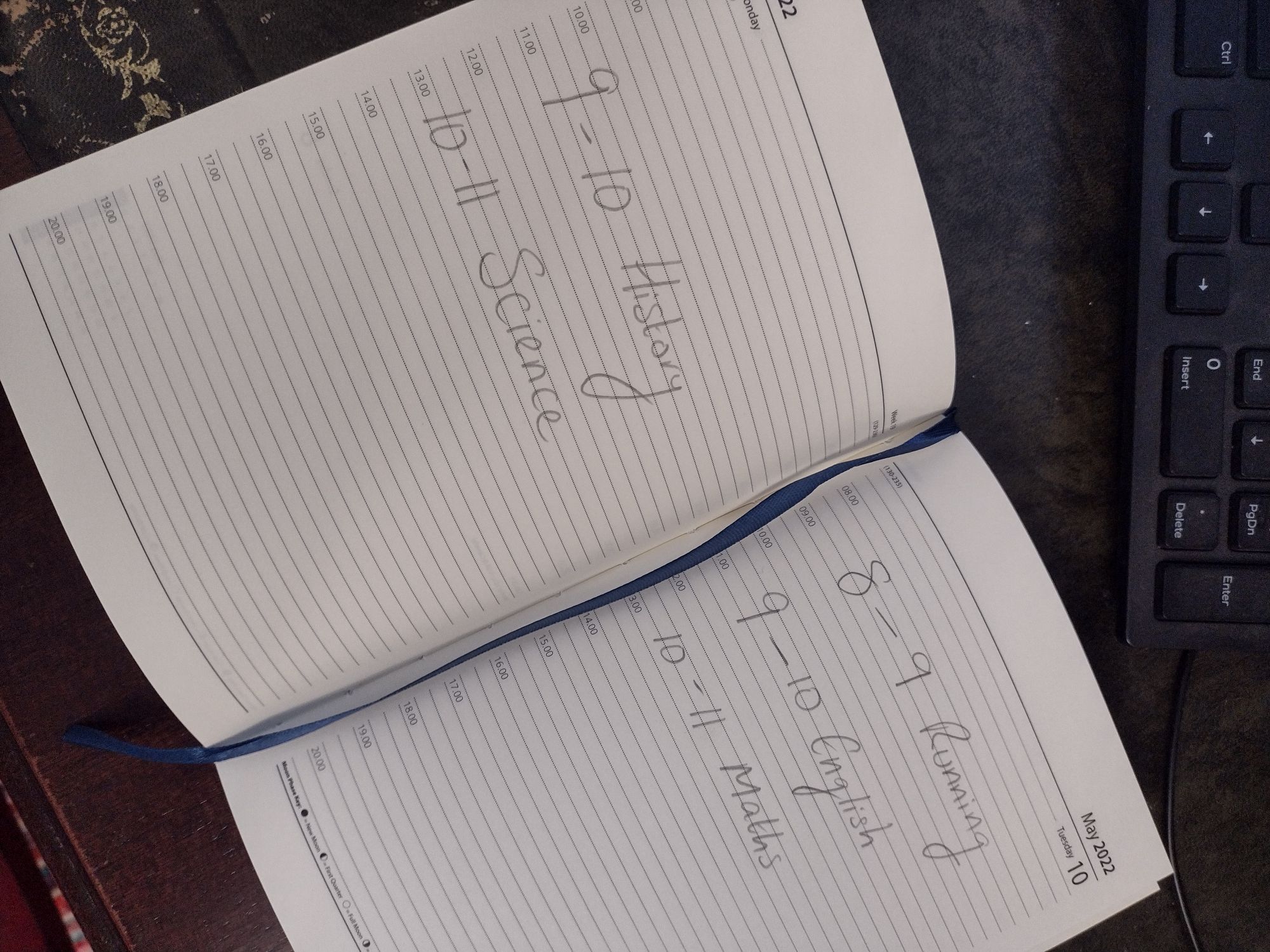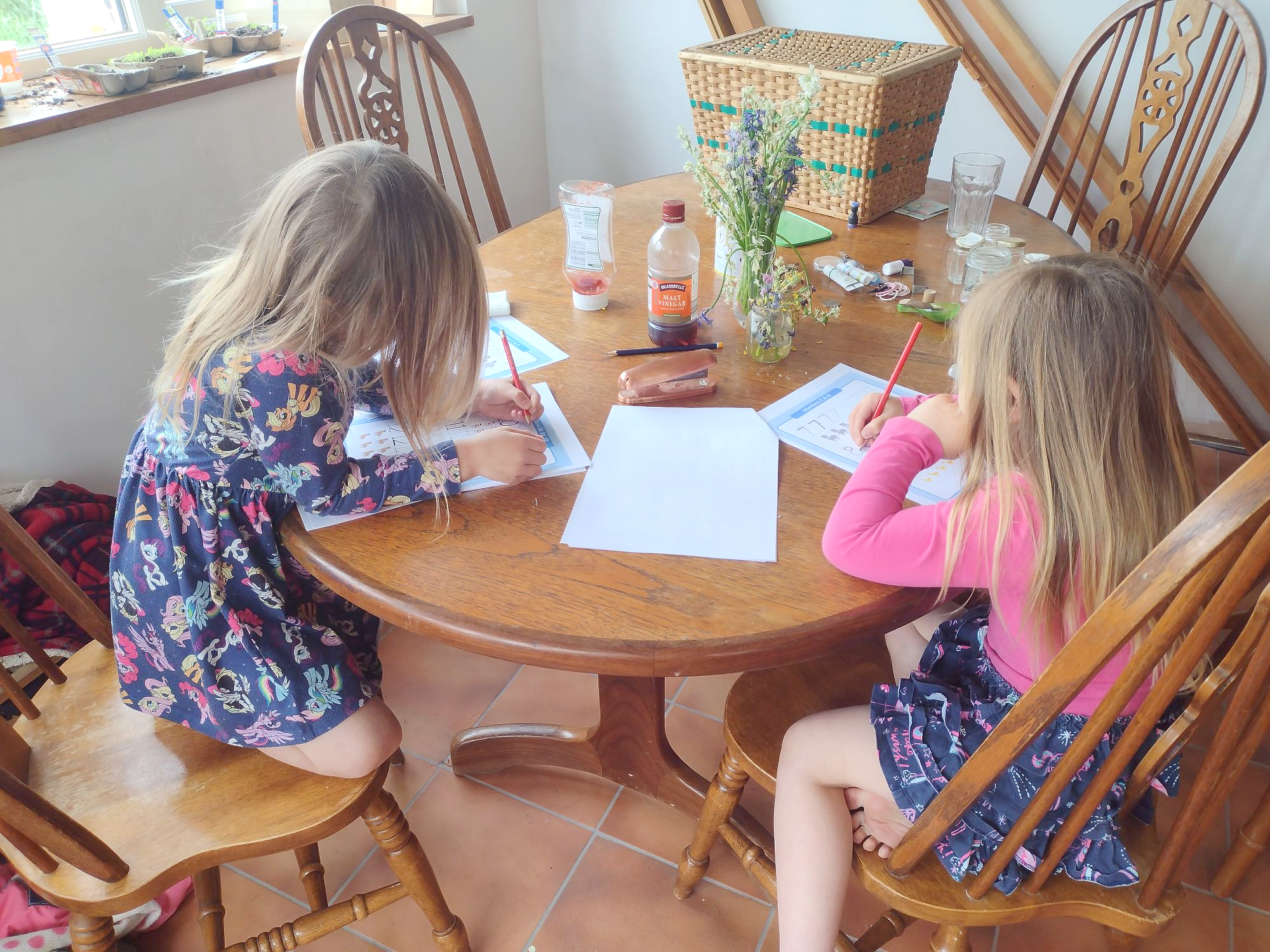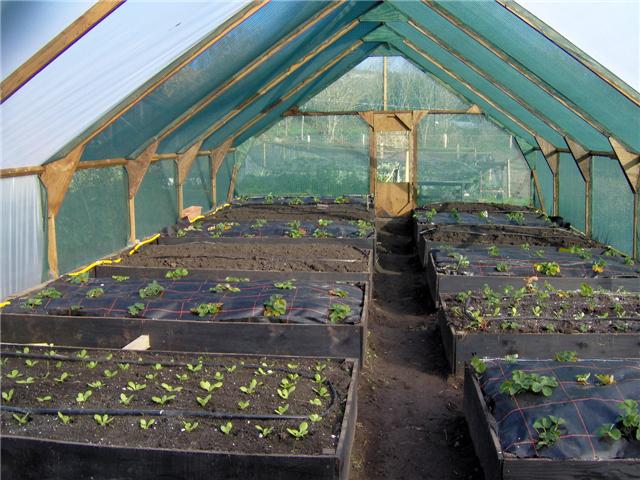A Brief Introduction to Homeschooling
Are you thinking about homeschooling? Perhaps your child has been unhappy in school for some time, or has been left behind in class (or is finding themselves not sufficiently challenged). Perhaps you have thought about homeschooling for some time, and the recent emergency has shown you that it is a realistic choice for you.
If this is you then there will be a lot to think about. What will they learn? When? Where? How? We have put together this brief guide to homeschooling to help you with your first steps - why not watch our Introduction to Home-Schooling Series on YouTube - our first video is below!

Am I allowed to take my child out of school?
In most cases, yes. We often talk about ‘compulsory school age’, but what we really mean is ‘compulsory education’. If you can show that your child is being suitably educated otherwise they don’t have to be in school - with a few exceptions.
England and Wales: You may take your child out of school and home-educate without seeking anyone's permission, unless they attend a specialist school for students with special educational needs; you will then need to get the agreement of the Local Authority first.
Scotland: If your child is already in a council-run school, you need to seek permission to withdraw them (but this permission should not be unreasonably withheld).
Northern Ireland: You CAN remove your child from any school in order to home-educate, without seeking the Local Authorty's permission.
For guidance on the practical side of withdrawing your child from school, Education Otherwise (www.educationotherwise.org) are a charity with a lot of information to help you.
What does my child need to be taught?
Home schooling families are not bound by the national curriculum. You may have a moral objection to some part of the curriculum and choose to skip this. You may feel that some subjects are more important than others – perhaps you may choose to place more of an emphasis on languages or music than a formal school would. Here at Little Arthur, for example, we tailor our courses to have an ecological slant where possible (we were green long before it was cool!) What you do have to do is provide a suitable and efficient education - one which provides your child with the ability to thrive in society as they grow up.
If you are trying to satisfy your education authority that you are providing a suitable education for your child, it is a good idea to make sure you can show that you are giving them the essentials for getting by in society in this country.
- They need to be able to read
- They need to be able to communicate in writing
- They need to be able to do at least basic maths.
Once your child goes out into the world of work it is likely that they will find a lot of doors closed to them if they don’t have (or can’t get) GCSEs or equivalent in Maths and English, so it is well worth working towards this level with your child.
If you are homeschooling for practical, rather than ideological reasons (for example, due to health, issues with bullying or location) then you may find it easiest to follow the National Curriculum. This gives a structure for your teaching, and working through it will also serve as useful evidence for the Education Authority that you are actively educating your child, as well as making it easier for your child to transition back into mainstream school should circumstances change. All our KS3 packs follow the National Curriculum, and we provide Student Record Cards which serve as useful evidence of educational progress.


What should a typical homeschool day look like?
A child of compulsory school age (4-16 in England, Scotland and Wales, 5-16 in Northern Ireland) needs to be in 'full-time' education - but this does not mean 9-3, Monday to Friday!
Each family will find what works best for them; don’t be afraid to change your approach if it doesn’t seem to be working!
We have found that it is helpful to have a structure, one which the child knows in advance and knows they have to stick to. If that means it’s school between 9 and 12, they learn not to try to schedule other activities in that time. Remember that your child does not need to have a full 6 hour school day – in a one-to-one environment they will learn more intensely than they would in a class of 30+, so they are unlikely to need this much time. If they have found something difficult, they can always pick it up tomorrow – the time constraints of the school year don’t have to apply (this also gives you the opportunity of looking up alternative ways of teaching that point, ready for the next day!)
The best structure also includes some time set aside for exercise – ideally outdoors. There are a multitude of studies which show the benefits on body and mind of exercising, and particularly exercising in the open air. This may be an opportunity for your child to socialise, if there are team sports locally in which they are interested, but if they are not interested don’t feel that you are failing them if their day’s exercise is a walk with you. Some children need more social time than others, and that is perfectly normal.
To what extent should I be teaching my child?
We call our courses ‘Home Educator Packs’ for a reason. We don’t believe that you can plonk a child down with a load of material and expect them to get on with it. If you don’t show them that what they are doing is interesting and important to you, why should they feel it is interesting and important for them? Children learn from our attitudes.
You may not be able to sit with your child all day, every day. You may have work commitments, and there are always a million things to do. But you need to show them that their work is important. If they are young, they are likely to learn best if they are working through things with you. As they get older they may be able to do more research on their own, but you need to be on hand to make sure they don’t get distracted, lost down a Google rabbit hole or just plain lost. It’s also vital that you are there at the end, to see the outcome and give the encouragement your child needs.
This is a lot to take on, and homeschooling is by no means the easy option. It takes a lot of commitment to do it well – and we owe it to our children to do it well. Our aim as a school is to provide you with all the materials, resources and support you need to enable you to focus on your child’s teaching.


What if I struggle with a subject?
“I’m rubbish at maths!” is a cry heard across the country – in fact, the frequency with which we hear it suggests there’s something very wrong with our education system!
The thought of helping your child learn a subject in which you yourself are not confident can be daunting, but don’t be put off. A primary school teacher recently confided that she found Maths easier to teach than any other subject – not because she found the subject easy, but because she found it so difficult herself! Because she struggled with it as a subject she had to break down the elements until she could understand them – and at that point they were building blocks her students could work with.
There are a range of approaches to tackling subjects you are not confident in:
The ‘New Lecturer’ approach. One university lecturer recalled how, when he first got the job, he would borrow all the copies of the relevant texts from the library and read them before his lecture, so he could be sure that the students didn’t have access to more information than he did! Essentially, hasty revision is helpful (but stressful).
The ‘let’s learn together’ option. If it’s something you struggle with, talk through the materials together until they make sense to both of you. This is an excellent option for showing how important you think the subject is!
The ‘you teach me’ option. If your child is old enough to research on their own, you could encourage them to find the information for themselves and then explain it to you. This is a brilliant way of reinforcing the learning for your child, and of developing their speaking and presenting skills as well.
Let us help you! All students enrolled on our courses (and their parents!) are welcome to email us at any time with questions on how to approach a subject. Whether by sending out helpsheets, directing you to useful websites or building personal walk-throughs for difficult problems, we are always on hand to help.
Alternatives which have worked for other families include banding together with other homeschooling families for specific subjects or calling in the support of family members. We have known students taking Geography field trips with uncles delighted to finally have the chance of using their degree subject, or families who have regular English lessons with Grandpa, the retired headmaster.
We don't expect parents to be experts in any of the subjects we teach - that's what we're here for! We are always on hand to provide guidance on difficult topics, and our assignments help reassure you and your child that they have properly understood the work they have studied, and identify any areas that need to be worked on.
Where should I teach my child?
Our advice is, if possible, to set up a room in your home as the ‘schoolroom’.
If space doesn’t allow this, establish a quiet corner where you go for schoolwork and nothing else.
If all else fails, make it a ritual of your morning to make sure the table is clear and all schooling materials are set up before you start lesson time – this will keep your child from getting cheerfully distracted looking endlessly for a protractor!


How can I make sure my child is socialised?
Your child is not a puppy – it does not have to be carefully introduced to other children at a young age to avoid snapping later on. On the other hand, spending time with others teaches a whole host of vital life skills, including negotiation, communication and assertiveness.
If you live in a heavily populated area you should have no difficulty in finding clubs, groups or societies for your child to join. Being homeschooled does not preclude joining Scouts/Guides/sports clubs/religious groups! You may also find that there are homeschooling groups, nearby and nationally, who can introduce your children to others who share their experiences of alternative education. Living in the countryside may pose a few more challenges; think about options such as the Young Farmers, if your child has agricultural interests, or perhaps finding a pen-friend elsewhere in the country.
How can I keep my child motivated?
How do you keep yourself motivated? Your child is their own individual person, but a lot of who they are is likely to have come from you. You will probably already know which of these motivators works for you!
- Structure – if you know you have to work between 9 and 11, you will get on and do it.
- Reward – once we have finished this unit, you can…. – try to make it something which is either time limited or healthy, e.g. have half an hour on your console/have some peace to finish your book/go and play in the sun. Try to avoid food as a motivator if you can, to avoid setting up difficult habits later in life!
- Achievement – this is our focus at Little Arthur Independent.
One reason for our tutor-marked assignments is that it encourages students to do their best work. They may be willing to present a scruffy piece of writing for mum or dad, but if an outsider is marking it we find that students are much more willing to put their energies to turning out something to be proud of. We think that this pride in producing something worthwhile is a motivator well worth cultivating – it provides its own reward and will work well for your child throughout their life.
